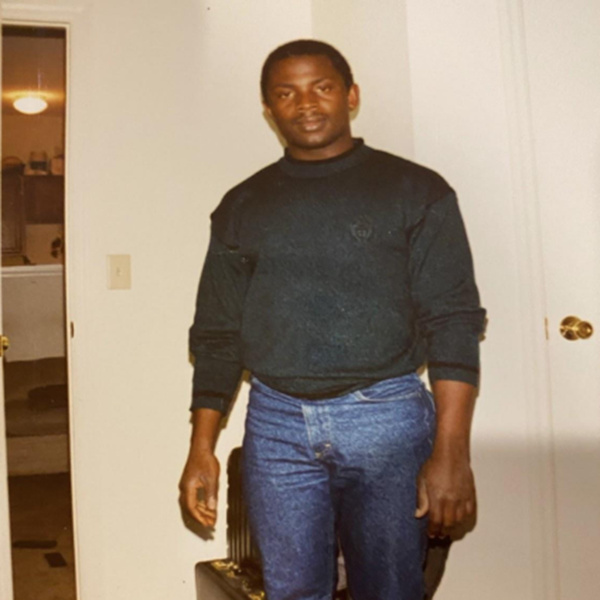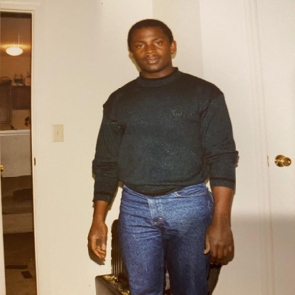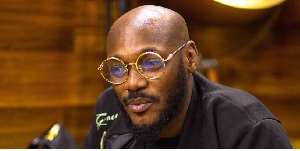Imagine making the journey from Ghana to America, with the promise of a better life from your father but after getting here, you learn it was all a lie. You face the hurdles of racial bias, and emerge not just as a seasoned engineer but as a trailblazer in medical innovation. Ernest Addi's story is proof that ‘resilience makes master’. He has navigated a career from being one of the few black individuals in his department to becoming a principal engineer at Medtronic, the world’s leading medical device company.
Beyond the challenges, he is shaping the future of research and development, determined to revolutionize global medical solutions. It's a journey marked by unwavering commitment and the triumph of the human spirit.
A BEGINNING IN GHANA
Addi's journey began in Ghana, where he graduated from the Mercedes-Benz Technical Institute, a collaborative effort between the Ghana National Trading Company and Daimler-Benz of Germany.
He describes the rigorous selection process, with only 20 students admitted annually to master the intricacies of maintaining Mercedes products. "It was tough. You talk about working with the Germans. Not easy training,” he said.
A SHIFT TO THE UNITED STATES

Addi during his first year in America. Photo by Ernest Addi
Addi's transition to the United States at 19, sponsored by his father, promised a life of prosperity and success. The American dream quickly shattered the illusions he harbored in Ghana.
"In my first month here, I wanted to go back home. That's how tough it was," he reflected, throwing light on the disparity between expectations and reality.
Complicating matters was his distant relationship with a father he barely knew. At 16, Addi's mother convinced him to meet up with the father he never knew and didn't care to meet. The emotional gap between them had widened throughout the years of absence. Their initial reunion got complicated when the man he barely knew gave him money to find a sister he had never met. He not only sought and found her, they traveled to the US together.
On arrival, Addi's father and stepmother insisted that he and his sister contribute to the rent. However, even after they complied, his father claimed their contribution wasn't sufficient.
“Half our paychecks were going to them, him and the wife. So at some point, he goes, well, you guys cannot eat in the house because the money that you're giving us is chicken feed,” Addi said.
Eventually, Addi found himself so short of money that he was compelled to live in his car at times.
In a moment of financial distress, he turned to his father for $10 for lunch while waiting for his paycheck. "I went to him and said, you know, can you give me $10? I haven't been paid yet, and I ran out of money so I could get some food at lunchtime."
His request was met with a stern refusal, accompanied by a lecture on self-sufficiency and the importance of finding one's path to financial stability. "What do you think this place is? You cannot come to me asking for money. You need to be able to find your way to get money," his father said angrily.

Ernest posing for a picture in his father’s house. Photo by Ernest Addi
His relationship with his father became more strained over time, driven by his stepmother's antagonism. In a dramatic household episode, Addi, recounted an intense exchange with her. 'She's eating, and I'm standing there, she spoke loudly, yelling, and screaming and before I realized it, a knife was swinging towards me.’ Addi managed to dodge out of the way.
At that moment, he had had enough. Packing his belongings, he resolved to leave home, spending the next two weeks sleeping in his car.
All the financial obstacles and his father’s broken promises did not stop Addi from pursuing his education while he worked at a Mercedes Benz dealership, where he harbored dreams of becoming an engineer.
"I always wanted to be an engineer," he said.
Navigating the challenges of obtaining an education, Addi enrolled into community college after saving enough money and overcoming initial setbacks.
Addi took on several jobs. One of the significant chapters in his work history was at Sears, where his knack for mechanics didn't go unnoticed. He then transferred to the University of Connecticut.
He made a name for himself by successfully figuring out and fixing a “foreign” car, Fiat, a task that had troubled many US auto shops while at Sears. This skill got him noticed and led to a well-deserved promotion in the engine diagnosis department.
ADDI’S ASCENT: FROM MECHANIC TO R&D PRINCIPAL

Addi doing his homework on his typewriter in 1992 while studying at UConn. Photo by Ernest Addi
His journey took a significant turn when he joined Medtronic in North Haven, Connecticut. He initially worked on jet engine designs at Pratt and Whitney as an intern during his final year at UConn, before transitioning to Medical Device Development.
"Medtronic came along and I realized that they were making so much money, and a lot of engineers were millionaires. This is the place I want to go," Addi said to himself.
Confronted with corporate challenges, including a lack of promotion, Addi actively explored opportunities elsewhere. Upon realizing his intention to leave, his employer reevaluated his earlier characterization of him as 'cheap labor'.
"When he realized I was about to leave, he goes, 'Ernest, I'll give you the promotion.' He gave me a promotion as a senior engineer. I said, 'Okay, I'll take it. But I'm still leaving.'"
BEING BLACK IN THE INDUSTRY

Addi posing for a picture with his dad during his graduation. Photo by Ernest Addi
Addi reflected on his challenges saying being black played a "significant role. Huge role” in holding people back in the engineering industry.
He acknowledged that stereotypes often plague African Americans in the workforce. "Over the years, I've seen a lot of black people come and go. Black people are usually labeled as lazy and combative. The biggest one is being combative. But I had a way around that. I don't let things bother me. Things that I don't have control over, I don't care. You can do whatever you want. I have no control over it. But things that I have control over, then I work with it. Make sure that it's done right."
FROM SOLITUDE TO SUCCESS
In his early days at Medtronic, he often found himself as the lone black professional in his department.
"For the longest time, there was one other black guy who was very, very mellow. And he and I, for the longest time, were the only black people in the department. When they told me to go to Norwalk and transfer my product here, I went to the conference room. I looked around, every time I looked around, I was always the only black person."
Yet, he rose through the ranks, defying the odds. "Now I am a principal engineer. At Medtronic, you can decide to go the managerial path of managing people or go into the technical path of being a manager. But you don't have people reporting to you on the technical side of it. Being a principal engineer, I'm a manager. But I don't have anybody reporting to me, but I give advice and I help others because I've been there for so long."
GLOBAL INFLUENCE AND INNOVATION

Addi posing in his living room. Photo by Ernest Addi
Addi’s role extends beyond borders, showcasing his global impact on medical device development. "I travel a lot. Sometimes they have an issue in other places such as Puerto Rico, the Dominican Republic. When I go, they (Medtronic) fly me there."
His extensive travels have expanded his professional horizons. "Within the United States, there are so many. I've gone to so many other states because I had to go to the operating rooms to see cases for our products. And then we have to set up labs to work with other doctors to try our products."
THE INVISIBLE HAND BEHIND INNOVATION

Addi and family during his son’s graduation. Photo by Ernest Addi
He also sheds light on his significant contributions to product development at Medtronic, unveiling the unseen facets of his role.
While Addi's projects have shaped the medical landscape, he remains modest about his achievements. "Nobody knows what I do," he chuckled. A quick Google search, however, unveils a different story. "If you Google my name, you'll see patents, designs patented under my name," he admitted.
Addi also played a major role in improving LigaSure, a medical tool from Arizona. His work extends to a unique tool for removing fibroids in a less invasive way, reducing scars. Addi's inventions might not be widely known, but they have greatly influenced medical procedures.
In Addi's own words, "Innovation, for me, is about persistence and making sure the final product does exactly what it's supposed to do. It's about helping patients and moving medical technology forward."
Beyond his professional pursuits, Addi is happily married and is a proud father of two, a boy and a girl. He continues to look forward to contributing more groundbreaking inventions globally – all from his settled home in Connecticut.
Diaspora News of Tuesday, 2 January 2024
Source: Doreen Abanema Abayaa, Contributor













